#Konjiki no Yasha
Text
So this got me thinking… How common is the “the rejected poor suitor becomes rich and turns vengeful” plot type in world media? Is Wuthering Heights really the most world-famous example of it? Am I right in incessantly comparing Asoiaf’s Littlefinger to Heathcliff?
More than with any other poll I have made, I am extremely curious about this one. I find this subject absolutely fascinating. PLEASE respond, explain your reasoning for the option you chose and spread the poll.
Some notes:
Yes, Gatsby doesn’t turn vengeful but he is still influential I think on this plot type.
It seems more common in Eastern media but I discovered that both the Japanese Konjiki Yasha and the Turkish “poor but proud youth” movies are based on American stuff. It seems to have been embraced by Easterners but it seems to be a plot of Western origin which makes sense, since it is a 19th century story type that requires capitalism to exist.
Edit: The results are a bit disappointing. Gatsby was not vengeful, and I haven’t yet read Monte Cristo but as far as I know his reasons for revenge are far more voluminous. Of course Heathcliff also avenges the abuse he endures at the hands of Hindley, but his main reason for his revenge is very much about losing Catherine due to classism and racism and poverty. And he becomes really vengeful. As such I think “the rejected poor suitor becomes rich and turns vengeful” fits WH the best.
#wuthering heights#the great gatsby#the count of monte cristo#polls#wh polls#konjiki yasha#uğultulu tepeler#petyr baelish#asoiaf
25 notes
·
View notes
Text
[ 沈まぬ月 (Shizumanu Tsuki) ] - Unsinking Moon - English Translation (Game Ver.)
Yakou’s first and last song before his hiatus in Starless
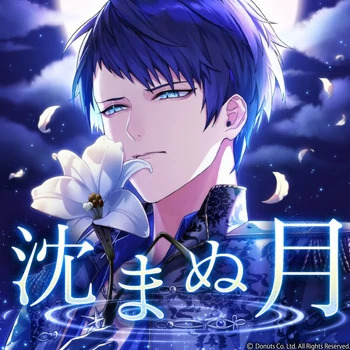
Vocals:
Yakou - Akito Matsumoto (From music group "Shinku-Horou")
Yoshino - Tomoki Saito (From music group "Academic BANANA")
(Yoshino’s lines will be in Italics like this)
Lyricist:
Takase Aiko
Music:
Abe Ryuudai
Lyrics:
I trusted you
If you felt the same way
Then why? Why?
Come on, say something
(This is ridiculous) The good days are over
(Thought it’d last) In my mind
I hated you as much as I loved you
Like a resonating cry (it’s vague)
Like the white blur of the moon (it’s faint)
Gaze up at the moon tonight (take a good look)
Remember it forever (with your own eyes)
There's only one of it (The night sky)
Every time I look up at the moon (I smile)
That sad past (The tears)
Tears I can't wipe away (while I watch alone)
(I won't forget, I can't ever forget)
(I can't forgive, I don't want to forgive)
There's no turning back
I stop and drown in my emotions
(But I wonder if it would be easier if I could just forget)
(I don't really know what I want anymore)
At the break of dawn, you're the one in my dreams
------
Where the song is based off:
The song is based off 「金色夜叉( Konjiki Yasha )」 (The Golden Demon/Yasha)
a novel written by Ozaki Kōyō, the work was left unfinished because the author passed away while it was being serialized in a newspaper.
Plot:
“A penniless orphan loses the woman he loves, when her family arranges a marriage to a wealthy playboy. He believes she was blinded by greed, and becomes a miser. (cheapskate)”
(summary taken from letterboxd.com based off a film adaptation)
#blackstar theater starless#blackstar theater starless translation#shizumanu tsuki#unsinking moon#yakou#yoshino#konjiki yasha#burasuta
9 notes
·
View notes
Quote
How foolish was I to despise the idea that Nature could cure the disease of my soul. Nature to me has always meant dull earth and water. How beautiful are the mountains and yet they are but heaps of earth; how cheering is the river, and yet it is but water! How much more to be despised am I, than that which I disdained to know.
Ozaki Kōyō, “The Gold Demon” (Konjiki Yasha)
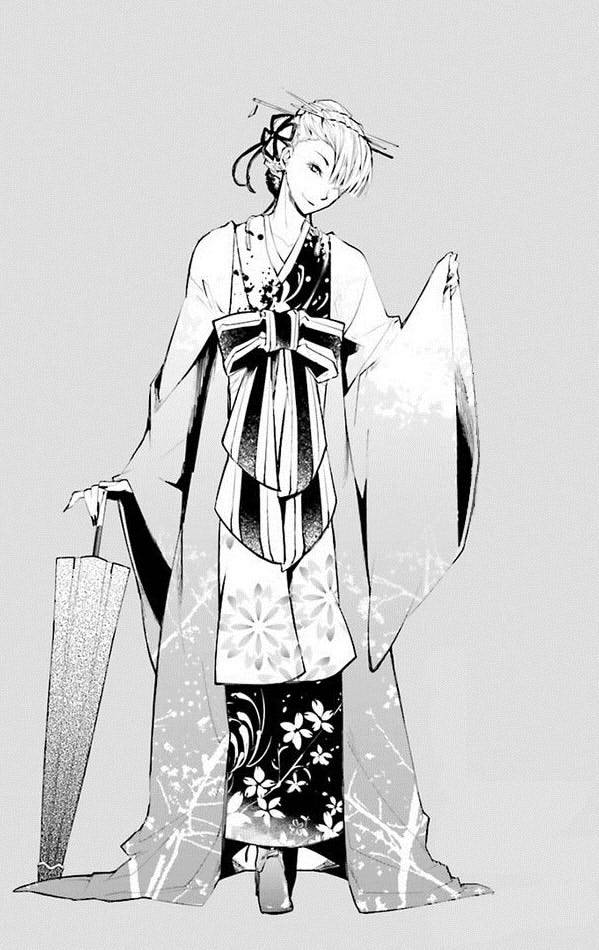
Submitted by @silmarusco
70 notes
·
View notes
Text
Makoto Morishita lanzará un nuevo one-shot el 12 de mayo
Nueva entrada publicada en https://www.animefagos.com/2020/04/17/makoto-morishita-lanzara-un-nuevo-one-shot-el-12-de-mayo/
Makoto Morishita lanzará un nuevo one-shot el 12 de mayo
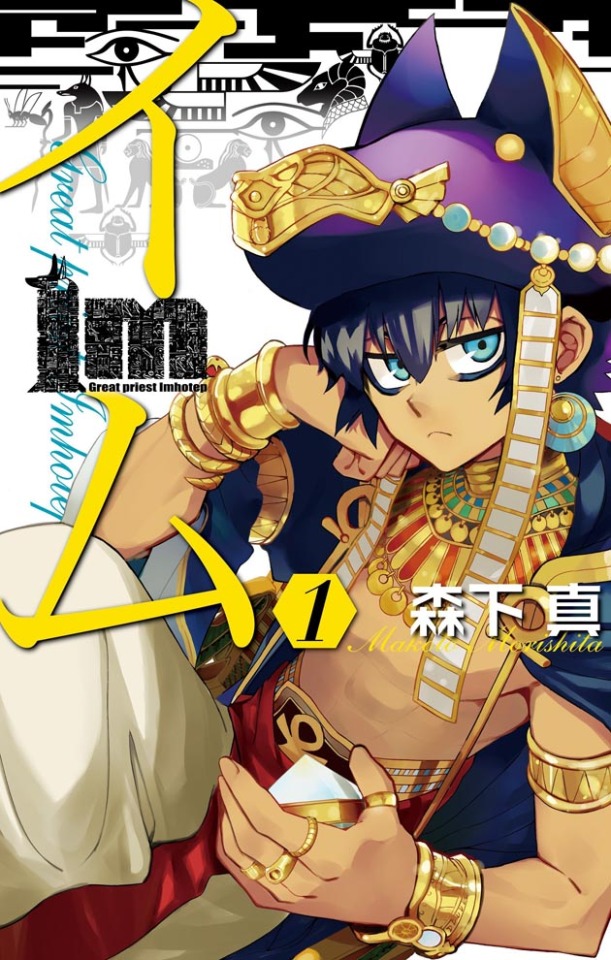
El número de mayo de este año de la revista Monthly Shonen Gangan (Square Enix) ha anunciado que Makoto Morishita publicará un one-shot, titulado Konjiki no Yasha, en el siguiente número, a la venta el 12 de mayo. El one-shot tendrá un estilo japonés de fantasía oscura, y contendrá páginas centrales a color. Morishita lanzó su manga IM:…
0 notes
Photo
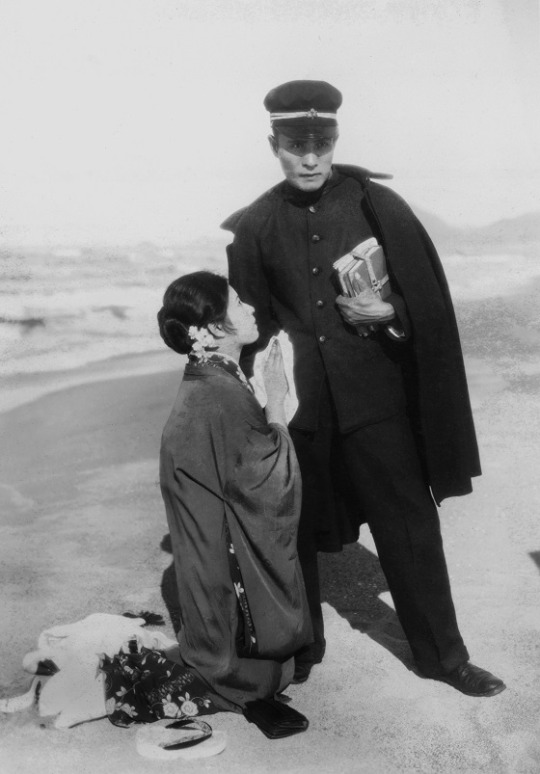
40 notes
·
View notes
Photo
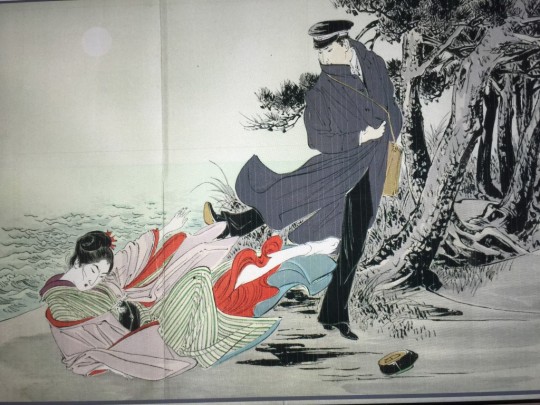
20 notes
·
View notes
Photo

yasha shirayuki vs konjiki yasha
#bungou stray dogs#bungou stray dogs season 3#bsd#bsdedit#bsd anime#3 season#anime#ozaki kouyou#port mafia#kyouka izumi#armed detective agency#yasha shirayuki#konjiki yasha
53 notes
·
View notes
Photo
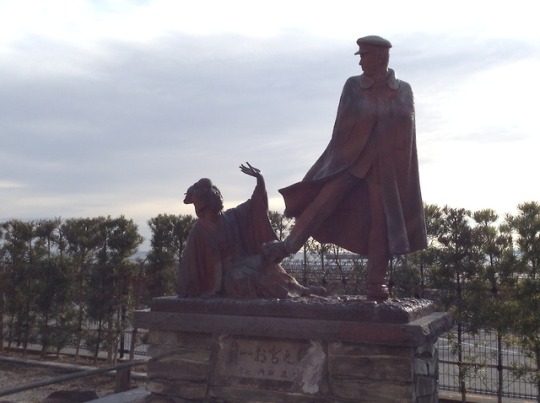
“Begone, thot”
6 notes
·
View notes
Photo
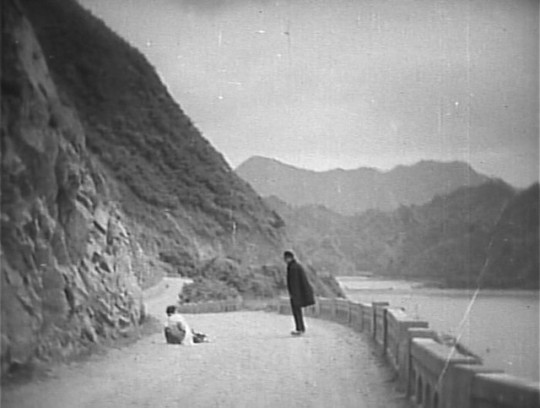
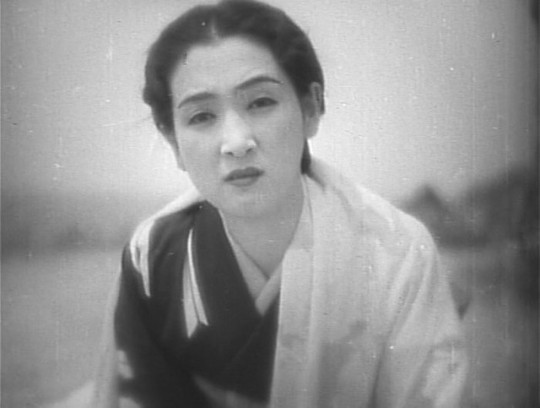
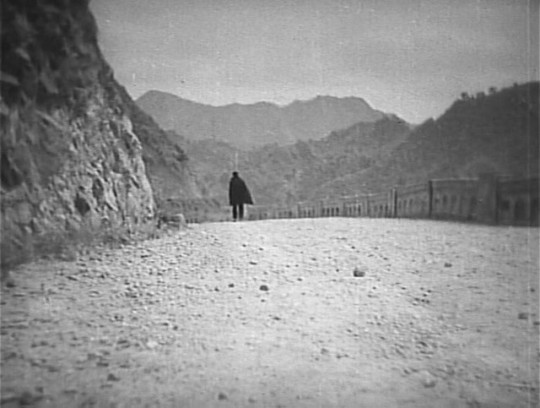
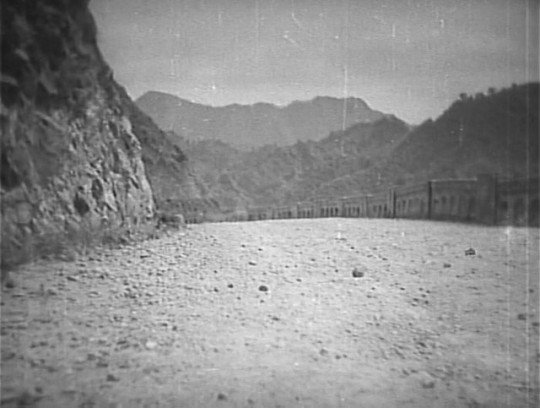
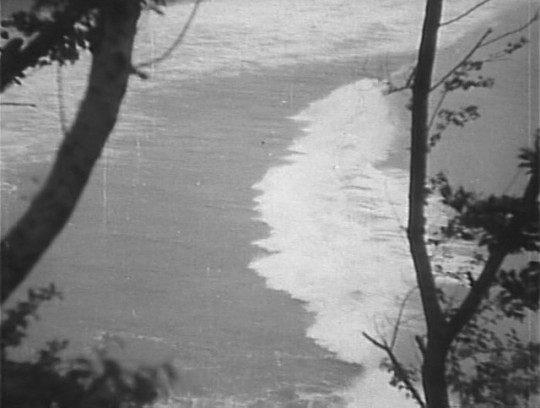
Konjiki yasha (Shimizu Hiroshi, 1937)
34 notes
·
View notes
Note
Oda chucks a bag of Hershey kisses at Kouyou and expects her to do the same.
Kiss a Ginger Rose-haired Beauty Day.
Kouyou finds the unconventional aspects of this method and means more amusing than anything else. She can be unconventional too and still fall within the spirit of the holiday.

“konjiki yasha~” A name hummed cheerfully as gust of wind follows rising demon. One that encircles the male within her arms and places ethereal kiss against his lips.
1 note
·
View note
Video
youtube
Chibi Maruko-chan 021
Maru-chan and the School Arts Festival
Okay, this episode almost killed me. This one had to be done entirely by ear, and there were so many hard-to-parse lines alongside hard-to-understand references that I almost said the heck with it and skipped ahead to the next episode.
However, one of the sites I reference said that Masaaki Yuasa had a major role in creating this episode, so you Yuasa fans out there will probably want to check it out. His influence isn’t immediately obvious, but you can kinda make it out in a few scenes.
Kobutori Jiisan - This is probably the biggest pain of the whole episode -- everything hinges on a classroom production of this Japanese folktale that very few people in the Western world have heard of. I highly recommend you do some quick Googling to fill in the blanks yourself, but the Cliff’s Notes version is as follows.
-Two old dudes live next to each other, both with big lumps on their faces.
-One old dude is nice, the other old dude is a jerk.
-The nice old man ends up partying with the Oni, Japanese demons.
-They take the nice old man’s lump ‘cause he’s a cool guy.
-The nice old man brags about this to the jerk old man.
-The jerk decides to try this out himself.
-The jerk old man sucks at partying though, and the Oni are unimpressed.
-The Oni stick another lump on the jerk old man’s face.
Now, this is the version of the story they focus on the episode. I’ve seen the motivation for why the Oni remove the old man’s lump change in different versions. This isn’t that important, but be forewarned that if you ever end up having to discuss this story with some pedantic nutjob, they’re probably going to walk all over you.
Benkei - He’s a legit warrior monk dude who has a bunch of folklore written about him, with the most popular being his appearance in Ushiwakamaru, the story of Minamoto no Yoshitsune, another base dude. If you’ve watched enough anime, you’ve probably seen stuff with a guy on a bridge refusing to let people pass and another guy finally kicking his teeth in, at which point the bridge guy swears his loyalty to the teeth-kicker guy. Anyways, the bridge guy is usually a takeoff of good ol’ Benkei here.
The Golden Demon - Otherwise known as Konjiki Yasha in the original Japanese, this is a story by Ozaki Koyo. Some guy is in love with a girl who ends up jilting him because she gets proposed to by some other dork who gives her a diamond ring. The guy starts hating the world and becomes a hard-hearted moneylender, and the girl ends up in a lousy marriage. Sounds like a good time all around, doesn’t it?
“Mt. Akagi” - Grandpa has a lousy memory and the famous line he utters isn’t from the Golden Demon, it’s from an eponymous movie about Kunisada Chuji, a leader of a group who were like the OG yakuza. Anyways, Kunisada made his base on Mt. Akagi, but when it’s put under siege by the government, he utters this supposedly-famous line before making his brief escape. Regardless, Maruko’s whole family end up wracking their brains over what movie the line Grandpa says originally came from.
81 notes
·
View notes
Text
So, I read this in Judith Pascoe’s “On the Bullet Train with Emily Brontë: Wuthering Heights in Japan”:
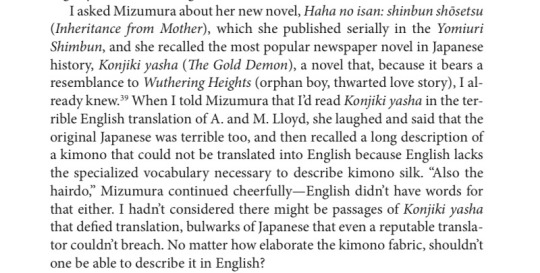
Of course I had to look up Konjiki yasha and I found plot summaries on IMDb and TV Tropes:
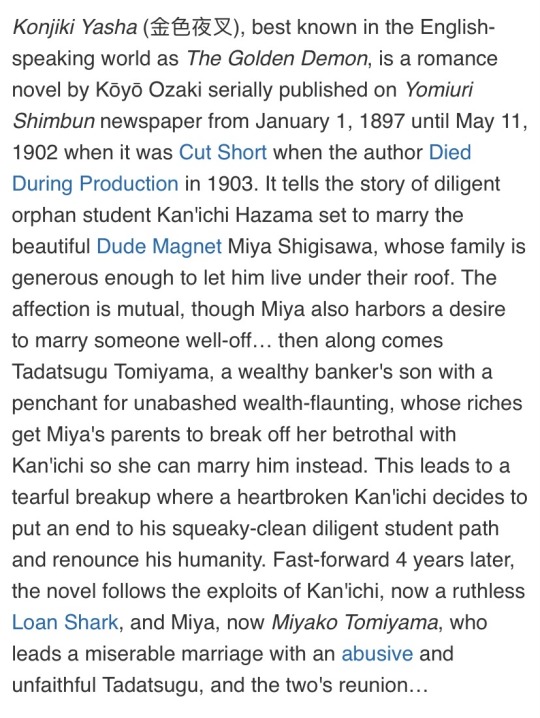
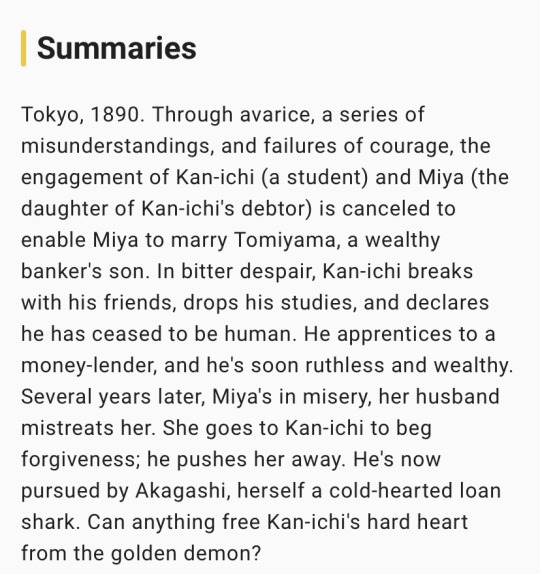
This archetypal plot reminds me of the old Turkish romance novels and films with similar plots, this character archetype is often jokingly called “fakir ama gururlu genç” (poor but proud youth) in Turkish.
“But faintingheroine”, you will say, “haven’t you bitten our ear off about the similarity between Heathcliff and Littlefinger and this probably not being a coincidence? It seems to be a common enough plot to me!”.
Well, you would be wrong. Wuthering Heights is still the most famous example of this plot in the English language and possibly in the World literature and the similarities between Heathcliff and Littlefinger are more particular than “the rejected poor suitor becomes rich and turns vengeful”.
#wuthering heights#konjiki yasha#minae mizumura#judith pascoe#petyr baelish#asoiaf#uğultulu tepeler#arashi ga oka
19 notes
·
View notes
Text
List of character Abilities
Author's name - "Ability Name" 「Ability name in original language」(Name of work which inspired the ability, English translation)
Armed Detective Agency
Nakajima Atsushi 中島 敦 - "Beast beneath the Moon" 「月下獣」(San Getsu Ki, lit. The Moon Over the Mountain 山月記)
Dazai Osamu 太宰 治 - "No Longer Human"「人間失格」(Ningen Shikkaku, lit. Disqualified from being human)
Kunikida Doppo 國木田 獨歩 - "Lone Poet" 「獨歩吟客」(Doppo Gin 獨歩吟)
Yosano Akiko 與謝野 晶子 - "Thou shalt not Die" 「君死にたもうこと勿れ」(Kimi Shinitamou koto nakare)
Edogawa Ranpo 江戶川 乱歩 - "Super Deduction" 「超推理」(not inspired by any specific works because it is not a real ability)
Miyazawa Kenji 宮澤 賢治 - "Undefeated by the Rain" 「雨ニモマケズ」(Ame ni mo Makezu)
Fukuzawa Yukichi 福澤 諭吉 - "All Men are Equal" 「天は人の上に人を造らず人の下に人を造らず」(Gakumon no Susume, lit. Encouragement of Learning 学問のすゝめ)
Tanizaki Junichirou 谷崎 潤一郎 - "Light Snow" 「細雪」(Sasameyuki, official English title: The Makioka Sisters)
Naomi 直美 (main female character in Chijin no Ai, lit. A Fool's Love 痴人の愛, official English title: Naomi - by Tanizaki Junichirou)
Port Mafia
Akutagawa Ryunosuke 芥川 龍之介 - "Rashomon" 「羅生門」(Rashomon, lit. City Gate of Rajou)
Kajii Motojirou 梶井 基次郎 - "Lemon Bombs" 「檸檬炸彈」(Remon 檸檬)
Izumi Kyouka 泉 鏡花 - "Demon Snow" 「夜叉白雪」(Yasha ga Ike, lit. Demon Pond 夜叉ヶ池)
Nakahara Chuuya 中原 中也 - "For the Tainted Sorrow"「汚れっちまった悲しみに」(Yogorechimatta kanashimi ni)
Hirotsu Ryurou 広津 柳浪 - "Falling Camellia" 「落椿」(Osa Tsubaki)
Mori Ougai 森 鷗外 - "Vita Sexualis"
Elise (main female character in Maihime, lit. The Dancing Girl 舞姫 - by Mori Ougai)
Ozaki Kouyou 尾崎 紅葉 - "Golden Demon" 「金色夜叉」(Konjiki Yasha, alt. translation: The Usurer)
Yumeno Kyusaku 夢野 久作 - "Dogra Magra" 「ドグラマグラ」(Dogra Magra)
Foreign
Dame Agatha Christie - "And Then There Were None"
Fyodor Dostoevsky - "Crime and Punishment" "Преступлeние и наказaние" (Prestupleniye i nakazaniye)
Francis Scott Key Fitzgerald - "The Great Fitzgerald" (The Great Gatsby)
Lucy Maud Montgomery - "Anne of Abyssal Red" (Anne of Green Gables)
John Steinbeck - "The Grapes of Wrath"
Howard Phillips Lovecraft - "The Great Old Ones" (The Call of Cthulhu)
Margaret Mitchell - "Gone with the Wind"
Nathaniel Hawthorne - "The Scarlet Letter"
Louisa May Alcott - "Little Women"
Herman Melville - "Moby Dick"
Mark Twain - "Huck Finn & Tom Sawyer" (Adventures of Huckleberry Finn; The Adventures of Tom Sawyer)
(source.)
127 notes
·
View notes
Quote
She had learned that happiness is only to be found at the side of the one beloved.
Ozaki Kōyō, “The Gold Demon” (Konjiki Yasha)

Submitted by @silmarusco
73 notes
·
View notes
Photo
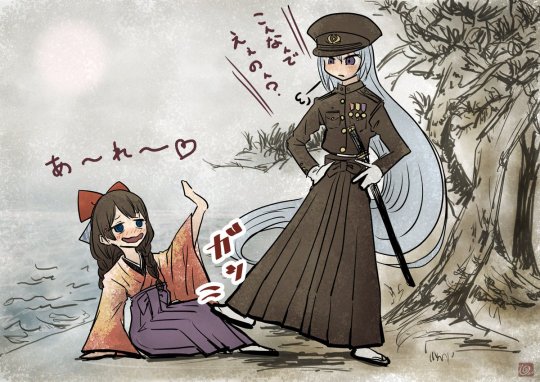
#金色夜叉#konjiki yasha#dai nippon gothic#omiyanomatsu#kanichi#omiya#大日本ゴス#大日本ゴシック#dainippongothic#dainippongoth
21 notes
·
View notes
Photo
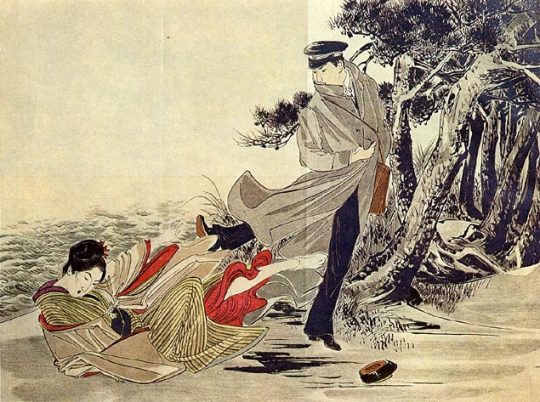
金色夜叉
13 notes
·
View notes